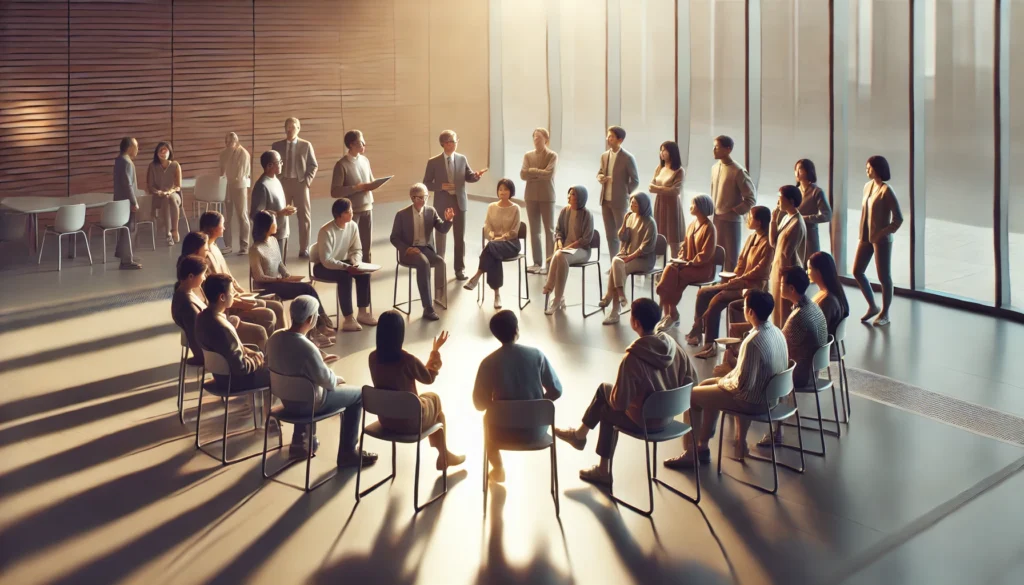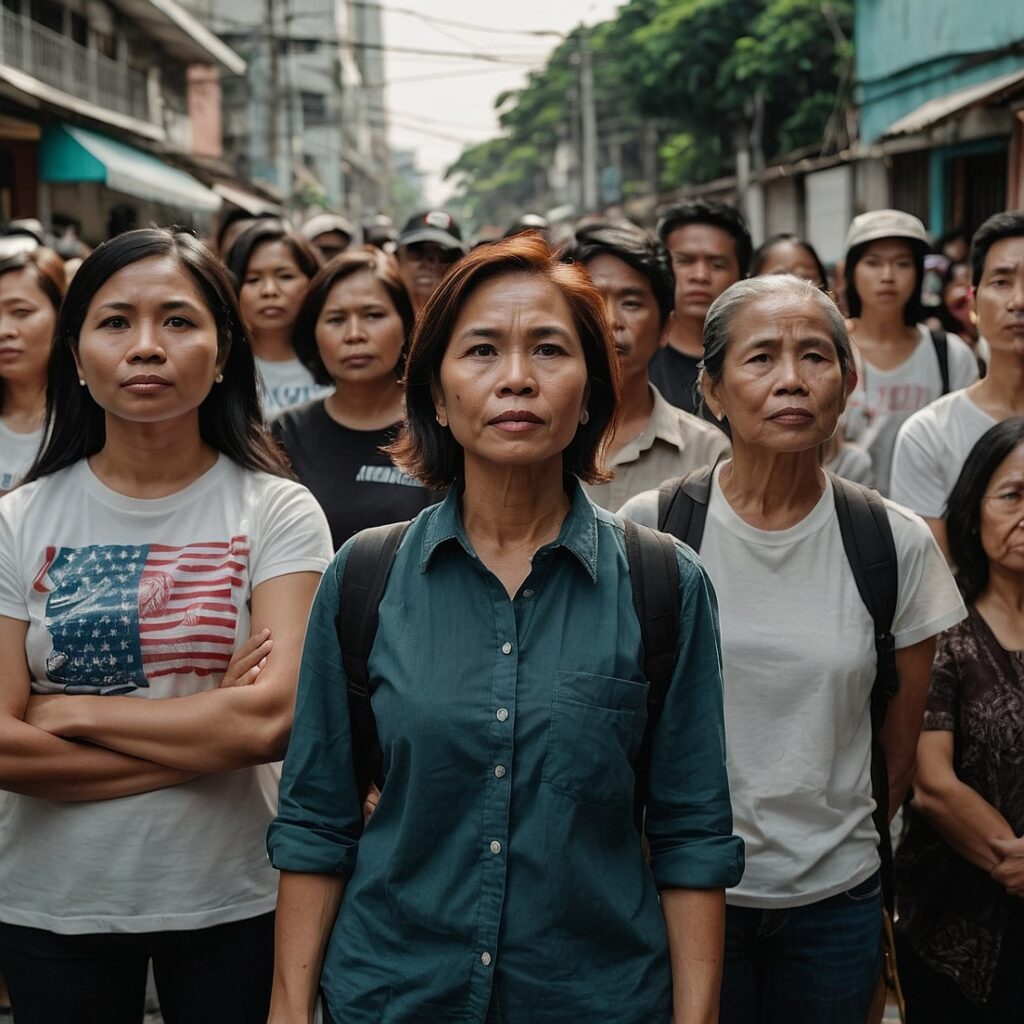The Philippines, an archipelagic nation in Southeast Asia, boasts a rich tapestry of cultural heritage and a complex political landscape. At the intersection of these two facets lies a unique set of values that profoundly influence the country’s civic engagement and political processes. This blog post delves into the intricate relationship between Filipino values and politics, exploring how these cultural underpinnings shape the nation’s approach to governance, civic participation, and social change. By examining the historical context, key values, and their manifestations in the political arena, we aim to provide a comprehensive understanding of the forces driving Filipino civic engagement up to 2017.
Historical Context of Filipino Values
Pre-colonial Era
The foundation of Filipino values can be traced back to the pre-colonial era, where diverse indigenous communities thrived across the archipelago. These early societies were characterized by strong communal bonds, respect for elders, and a deep connection to nature. The concept of “bayanihan,” or communal unity and cooperation, emerged during this period as a fundamental aspect of Filipino social structure. This value system emphasized collective well-being over individual gain, laying the groundwork for future social and political interactions.
Spanish Colonial Period
The arrival of Spanish colonizers in the 16th century marked a significant turning point in the evolution of Filipino values. Over three centuries of Spanish rule introduced Catholicism, which became deeply intertwined with indigenous beliefs and practices. This syncretic blend gave rise to new values and social norms, including a strong emphasis on family, religiosity, and respect for authority. The colonial period also saw the emergence of a hierarchical social structure, which would later influence political dynamics in the country.
American Colonial Era and Independence
The transition from Spanish to American colonial rule at the turn of the 20th century brought about further changes in Filipino value systems. The introduction of American-style democracy and education systems exposed Filipinos to new ideals of individual rights, freedom of expression, and civic participation. This period laid the foundation for the Philippines’ modern political structure and instilled a desire for self-governance among the populace. The struggle for independence further solidified national identity and values centered on patriotism and sovereignty.
Core Filipino Values
Family-centeredness
At the heart of Filipino society lies an unwavering commitment to family. This value extends beyond the nuclear family to include extended relatives and even close friends, often referred to as “family” in Filipino culture. The family serves as a primary source of social, emotional, and economic support, influencing decision-making processes at both individual and collective levels. In the political sphere, this family-centeredness often manifests in the form of political dynasties and patronage systems, where familial ties play a significant role in shaping power structures and governance.
Respect and Social Harmony
Respect, particularly for elders and authority figures, is a cornerstone of Filipino culture. This value, known as “pagmamano” or “pagkilala,” emphasizes deference to those in positions of seniority or power. In the context of civic engagement, this respect for authority can sometimes lead to a reluctance to challenge established norms or openly criticize leaders. However, it also fosters a sense of social harmony and order, which is highly valued in Filipino society.
Bayanihan Spirit
The concept of “bayanihan,” mentioned earlier, remains a powerful force in Filipino culture. This value emphasizes community cooperation, mutual assistance, and collective action for the greater good. In civic and political contexts, the bayanihan spirit often manifests in grassroots movements, community-driven initiatives, and volunteerism. It serves as a driving force behind many social and political campaigns, particularly in times of crisis or national need.
Faith and Religiosity
Religion, particularly Catholicism, plays a significant role in shaping Filipino values and, by extension, political engagement. The Philippines is home to the third-largest Catholic population in the world, with over 80% of Filipinos identifying as Catholic as of 2017. This strong religious foundation influences moral perspectives, social norms, and political choices. The Church often serves as a powerful voice in national debates on issues such as reproductive health, divorce, and corruption.
Filipino Values in Political Context
Impact on Governance
Filipino values significantly influence the country’s approach to governance and political leadership. The emphasis on family and personal relationships often leads to a personalistic style of politics, where loyalty to individuals or families can sometimes supersede loyalty to institutions or ideologies. This dynamic can manifest in both positive and negative ways:
| Positive Aspects | Negative Aspects |
|---|---|
| Strong community bonds | Nepotism and patronage |
| Personal accountability | Corruption and favoritism |
| Charismatic leadership | Personality-driven politics |
| Emphasis on social harmony | Reluctance to challenge authority |
The bayanihan spirit, when applied to governance, can lead to collaborative approaches to problem-solving and community-driven development initiatives. However, the same value can sometimes be exploited by politicians to garner support through populist measures that may not always align with long-term national interests.
Civic Participation and Social Movements
Filipino values play a crucial role in shaping civic participation and social movements. The strong sense of community and collective responsibility embodied in the bayanihan spirit often drives grassroots initiatives and volunteer efforts. This is particularly evident in times of natural disasters or national crises, where Filipinos quickly mobilize to provide aid and support to affected communities.
The religious values of compassion and social justice, deeply ingrained in Filipino culture, have also fueled numerous social movements and advocacy campaigns. The Catholic Church, in particular, has been a significant force in mobilizing citizens around issues such as human rights, environmental protection, and anti-corruption efforts.
Evolving Political Landscape
As of 2017, the Philippine political landscape was experiencing significant shifts, influenced by both traditional values and emerging global trends. The rise of social media and increased connectivity was challenging traditional power structures and offering new platforms for civic engagement. This digital revolution was particularly impactful among younger Filipinos, who were increasingly using online platforms to voice their opinions, organize movements, and participate in political discourse.
The table below illustrates some key changes in political engagement observed up to 2017:
| Traditional Forms of Engagement | Emerging Forms of Engagement |
|---|---|
| Face-to-face community meetings | Social media activism |
| Church-led initiatives | Online petitions and campaigns |
| Labor unions and professional organizations | Hashtag movements |
| Street protests and rallies | Citizen journalism |
| Voting in elections | E-governance participation |
Challenges and Opportunities
Balancing Tradition and Progress
One of the primary challenges facing Filipino civic engagement is the need to balance traditional values with the demands of a rapidly changing global landscape. While values such as respect for authority and social harmony have long been pillars of Filipino society, they can sometimes hinder critical thinking and the questioning of established norms necessary for political progress.
Corruption and Patronage Politics
The strong emphasis on personal relationships and family ties in Filipino culture, while fostering strong social bonds, also contributes to systemic issues of corruption and patronage politics. As of 2017, the Philippines continued to grapple with widespread corruption, ranking 111th out of 180 countries in Transparency International’s Corruption Perceptions Index.
Education and Civic Awareness
Improving civic education and raising political awareness among the general population remains a significant challenge. While Filipinos generally have a strong sense of national identity, there is often a lack of in-depth understanding of political processes, citizen rights, and responsibilities. Enhancing civic education could empower more Filipinos to engage meaningfully in the political process and hold leaders accountable.
Harnessing Technology for Civic Engagement
The rapid adoption of technology, particularly social media, presents both challenges and opportunities for civic engagement in the Philippines. While it offers new platforms for political discourse and organization, it also raises concerns about the spread of misinformation and the potential for manipulation of public opinion.
Future Directions
As the Philippines continues to navigate its political future, several key areas emerge as potential focal points for enhancing civic engagement:
Strengthening Democratic Institutions
Efforts to strengthen democratic institutions while respecting Filipino cultural values could help create a more robust and participatory political system. This might involve reforms to electoral processes, enhancing transparency in government operations, and promoting checks and balances between different branches of government.
Empowering Local Governance
The principle of bayanihan aligns well with decentralized governance models. Empowering local communities to take a more active role in decision-making processes could lead to more responsive and effective governance at the grassroots level.
Bridging Generational Divides
As younger generations of Filipinos become more politically active, there is a need to bridge the gap between traditional values and modern political ideals. Finding ways to honor cultural heritage while embracing progressive change will be crucial for the future of Filipino civic engagement.
Leveraging Technology Responsibly
Developing strategies to harness the power of technology for positive civic engagement while mitigating its potential negative impacts will be essential. This could include initiatives to promote digital literacy, combat online misinformation, and create secure platforms for e-governance.
Conclusion
The interplay between Filipino values and politics creates a unique landscape for civic engagement in the Philippines. The strong emphasis on family, community, and faith continues to shape political behaviors and institutions, even as the country grapples with the challenges of modernization and globalization. As of 2017, the Philippines stood at a crossroads, balancing its rich cultural heritage with the need for political reform and increased civic participation.
The path forward for Filipino civic engagement lies in finding innovative ways to harmonize traditional values with contemporary political needs. By leveraging the strengths of Filipino culture—such as the bayanihan spirit and strong community bonds—while addressing systemic challenges like corruption and patronage politics, the Philippines has the potential to develop a more vibrant and participatory democracy.
As the nation continues to evolve, the role of values in shaping political engagement will remain crucial. The ability of Filipinos to adapt their cultural strengths to meet the demands of modern governance will largely determine the future of civic engagement in the country. By fostering a political culture that honors tradition while embracing progress, the Philippines can work towards a more inclusive, transparent, and effective democratic system.
Disclaimer: This blog post is based on information available up to 2017 and aims to provide an overview of Filipino values and their impact on politics and civic engagement. While every effort has been made to ensure accuracy, readers are encouraged to verify current information and developments. If you notice any inaccuracies, please report them so we can correct them promptly.




